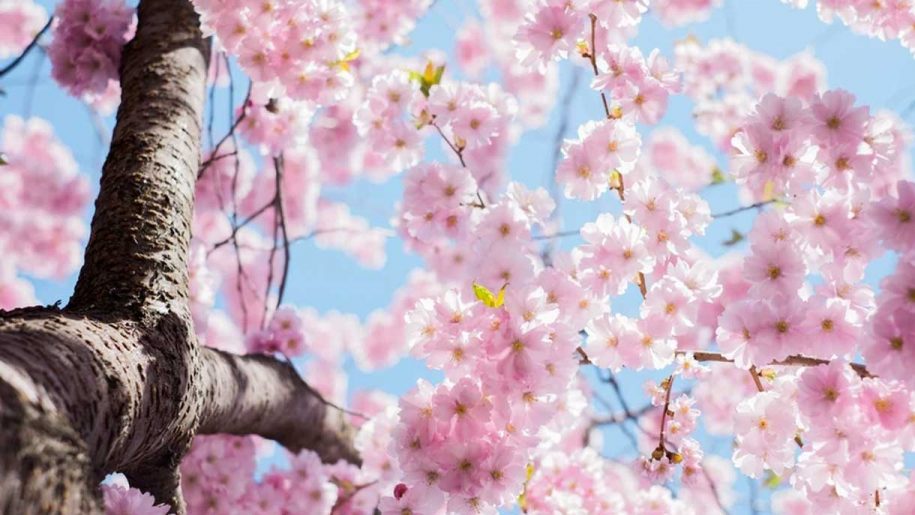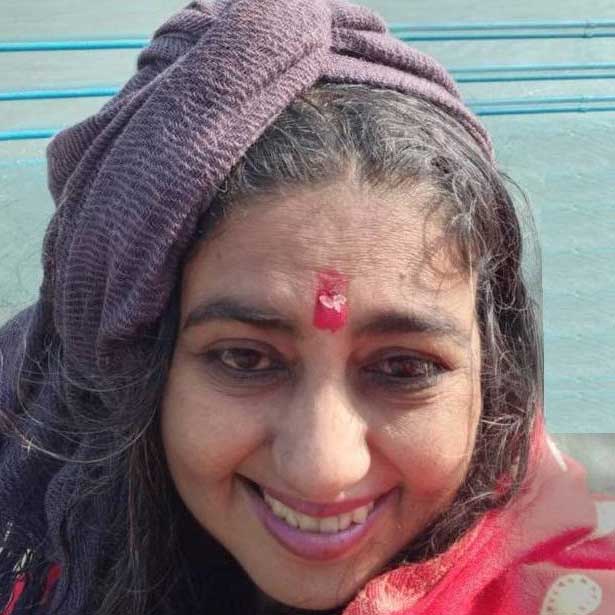Patience is a Virtue
Patience (dhairya) is a rare virtue and one that is being rapidly lost in our modern world. We live in a fast world, where everything must come immediately. We cannot wait. Fast food, fast communication, fast travel, fast relationships. Everything is changing in the world with alarming speed, but we must keep up with all the technological advances, in the name of progress or risk getting lost or marginalised. Deadlines to meet, one thing after the next, no time to lose! It’s a hectic pace and we rush madly on and on. There is no time to stand still and savour the moment. We are all rushing somewhere but not knowing where or why.
Everywhere has its own rhythm and pace. I remember that when I would arrive in India, I would notice the slowness of India and would become impatient and exasperated that everything, however simple, seemed to take forever. No one was in a hurry, as if they had all the time in the world. After a while I too had slowed down but returning to London, I would again notice the pace around me. People rushing past, all in a hurry to get somewhere. But it would not be long before I too was hurtling along at the same pace.
A fast pace of life affects our mind and increases the waves in the mind which makes us feel more restless and unsettled. It sets a certain momentum and it is more difficult to wind down and be quiet and still. With a fast pace, Vata dosha is excited and this in turn also increases our pace but with the disturbance of any dosha comes the risk of ill health. If the pace is unnatural for us either too fast or too slow, it creates a disturbance for the mind and body which can result in imbalance and sickness.
 Patience was, in times of old, an extolled virtue. There are a multitude of sayings, ‘Patience of a saint,’ ‘Patient like the earth,’ or ‘Everything comes to those who wait,’ which reflect the value given to patience. But we have long forgotten what this word means, let alone trying to cultivate this great virtue.
Patience was, in times of old, an extolled virtue. There are a multitude of sayings, ‘Patience of a saint,’ ‘Patient like the earth,’ or ‘Everything comes to those who wait,’ which reflect the value given to patience. But we have long forgotten what this word means, let alone trying to cultivate this great virtue.
It is ironic that the current Covid-19 pandemic is forcing us to slow down, to reflect and change our ways. Even to face such a situation as the pandemic we must exercise patience as very little is in our control. It must ultimately pass, as all things do. So, with this, in mind, we soldier on and do the best we can in a very challenging situation. If it teaches us nothing else, it will teach us patience!
It is noteworthy that patience has a central place in Ayurveda as one of the aspects of its psychospiritual therapy known as sattwavajaya. The cultivation of dhairya, is part of the therapy of psychological disorders. Dhairya encompasses patience, forbearance, fortitude and durability; the capacity to stay firm, calm and constant in the face of challenges and difficulties. Patience, forbearance and fortitude are not words that we hear much these days. They seem to belong to a bygone age. Ayurveda is however not specific to any time or place; its underlying principles are timeless and relevant to any place and time as they pertain to health, wellbeing and harmony.
Not only is this concept of patience and forbearance used in therapy but also in preventative strategies. Ayurveda teaches us under sadvritta, the attitudes and behaviour which are wholesome and conducive to health. The attitudes include forbearance, patience and tolerance which keep us steady in the winds of adversity, help us ride the storms that come and negotiate the challenges of life, without over-reacting and losing our centre and balance. This attitude increases our mental strength and power of endurance to deal with any given event or situation. We know that life-events are destabilising and often trigger illness and if we are better able to face these events, it may be to some extent a protective factor. It gives us staying power and detachment from the changing worldly phenomena, allowing events to come and pass and not to be destabilised. It allows us to accept everything that comes and to do our best in a given situation.
Patience is also needed in relationships which become challenging and difficult at times when egos clash. These days we want everything to come easy, but nothing worthwhile comes easy and everything requires work. We don’t want to have to work at something and are apt to throw it out if it becomes difficult. But if we leave this school, we will inevitably have to learn the lessons elsewhere. It is not that people should not separate because clearly when there is severe disharmony or abuse and the relationship has irretrievably broken down, it is better to separate. But it is good to remember that impatience leads to frustration, annoyance, irritability and intolerance. It does not make for a peaceful existence or co-existence with others. The best relationships that I have observed are where this quality of patience is exceptionally strong in one of the partners. Patience helps to overcome many hurdles and gives staying power.
How does one teach patience, forbearance, fortitude and endurance which are key to managing the challenges of life and not allowing them to overwhelm you? Patience may come naturally more easily to one of predominant earth/water constitution as in Kapha predominant individuals and less easily to the air/ether (Vata) who are quick by nature and do not have the same staying power or fire/water (Pitta) predominant individuals who by nature can be more impatient and intolerant when others do not meet their expectations.
 Patience can be cultivated as a habit by increasing conscious awareness of our actions and reactions. It requires reflection and taking internal distance from any situation. Any meditative practice that enhances our awareness will help us to cultivate this noble virtue as it helps us to stand back and observe.
Patience can be cultivated as a habit by increasing conscious awareness of our actions and reactions. It requires reflection and taking internal distance from any situation. Any meditative practice that enhances our awareness will help us to cultivate this noble virtue as it helps us to stand back and observe.
Acceptance and Commitment Therapy is a relatively newer psychological therapy in the West which is gaining ground. It draws on the principles of mindfulness and witnessing and the acceptance of situations, rather than struggling against a given situation. It is often the struggle and refusal to accept something that creates the greatest stress for us. To accept what is, implies to be patient.
Cultivating patience means to try to accept whatever comes and whatever goes, with the understanding that whatever takes place is destined to take place, determined by our previous karma. Accepting everything that comes, over which we have no control, as destiny or the will of God, helps us to cultivate patience and surrender. If we can learn to accept that our desires will not always be fulfilled and that we may sometimes receive something undesired, it can help to reduce the resistance, struggle and distress. We cannot always change given circumstances and sometimes have to just bear them patiently until they pass. What we can change is our actions and reactions, knowing that whatever we do and however we act will bear its own fruit and will determine our future circumstances. This means to reflect and accept that there is something to learn through every difficult situation, and that each challenge is a potential for growth.
When we accept that everything is a passing phenomenon through which we can learn something, we cultivate patience. When we accept others as they are without reacting to them and expecting them to be more like us, we are developing patience. When we are not disturbed by every insult or criticism, loss or failure but can stay quiet and calm, we are becoming patient. It is a lifelong process but as with any habit, anything that is practised repeatedly eventually becomes part of our nature. Only a patient man can be at truly at peace and without peace there can be no deep joy! As St Francis of Assisi once told his disciples that to bear hardship and suffering patiently in the love of the Christ was the way to ‘the perfect joy’! Love is by its very nature patient and patience shows us the way to peace and boundless joy.
 Dr Anita Duggal is a retired psychiatrist resident in the UK. She studied Social Anthropology at the London School of Economics and Political Science and was awarded an MSc with distinction in 1992.
Dr Anita Duggal is a retired psychiatrist resident in the UK. She studied Social Anthropology at the London School of Economics and Political Science and was awarded an MSc with distinction in 1992.
She has also studied Ayurveda in the UK as well as in India and was awarded an MSc in Ayurvedic Medicine from Middlesex University in the UK in 2007. Although she has worked mainly within mainstream Mental Health Services, she has always maintained a strong interest in Ayurveda and its approach to mental health within the field of Old Age Psychiatry.


